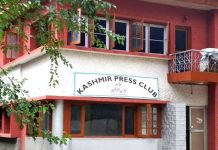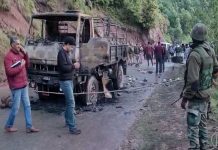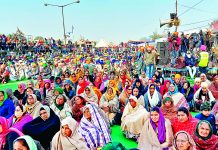
The caste survey released by Bihar on the Gandhi Jayanti has the potential to reshape the political narrative ahead of the 2024 Lok Sabha elections. It seems a make-or-break gambit in the run-up to the 2024 General Election by the Opposition to play identity politics over the BJP’s ideological politics.
The cover story in the current issue of Tehelka delves on the political googly that has led to a clamour seeking caste level census for revision of quotas for different castes in proportion to their respective population. Rajasthan has already announced to undertake a caste survey apparently to influence the political discourse in the state. Assembly elections are being held in Rajasthan, Madhya Pradesh and Chhattisgarh, besides Telangana and Mizoram. The issue of caste census is set to influence the narrative in these states because it might affect the targeted delivery of government’s welfare schemes and demand for a proportional share in reservations in education and employment on quota basis.
All this is likely come dangerously close to signalling the start of ‘Mandal 2.0’ politics after over three decades when the then Prime Minister VP Singh announced the implementation of the 1980 Mandal Commission report. When in 2022, the Supreme Court upheld a 2019 constitutional amendment for a 10 per cent quota for economically weaker sections in the general category, the demand for raising the OBC quota limit was rising. The implications of the move are enormous as the Bihar survey data has put the population of Backward Classes in the state at a whopping 63.13 per cent. Among the states going to polls, as per government surveys, OBCs constitute 42 per cent of the population in Rajasthan, 48 per cent in Madhya Pradesh and 43.5 per cent in Chhattisgarh. Little doubt all the political parties are raising their OBC pitch.
Alarmed, the ruling dispensation plans to counter Opposition’s OBC pitch by putting out data on backward class beneficiaries of government schemes and political space to OBCs in the saffron party pointing out that as far as BJP is concerned, 29 per cent of its MPs and close to 40 per cent of its MLAs and MLCs are OBCs. Similarly, out of 75 union council of ministers, 27 are OBCs.
Till recently, welfarism had emerged as a common theme across parties and states but caste census might shift focus from parties guaranteeing freebies to people to further dividing them. As of now, the demand for caste survey appears akin to creating another rumbling in the politically and socially unstable populace. Idea should be to serve the cause of social justice to make sure that benefits percolate down to the most disadvantaged sections of the society rather than remaining confined to the creamy layer. There is a need to ensure inclusive public welfare rather than creating further fissures!












